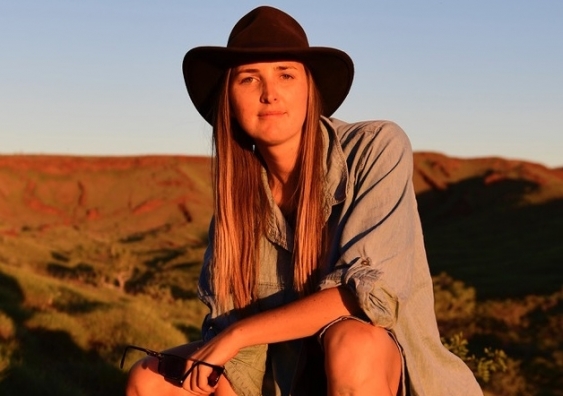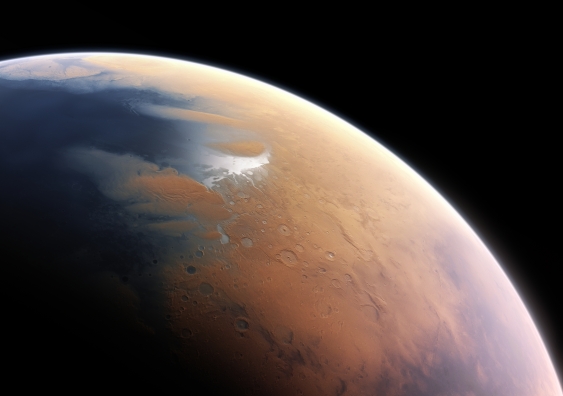The first Americans were propelled into space more than half a century ago. Within three years, NASA plans to launch Mars 2020; a rover mission searching for life on Mars and indications that we could one day live there.
Dr Graham Phillips (formerly of ABC Catalyst) and a panel of top scientists will address some of space exploration’s biggest questions at the Sydney Opera House this August: Will Mars be humanity’s first step toward inhabiting the galaxy? Is there simple life on the red planet? And how does NASA plan to get us there one day?
As part of National Science Week, UNSW Sydney's Big Questions Institute (UNSW BQI) and the Sydney Opera House have joined forces to present Life on Mars, How Australian scientists are shaping NASA's 2020 mission to the red planet. The stellar panel features:

- British theoretical physicist and astrobiologist Professor Paul Davies (pictured) will address whether we are alone in the Universe and what will happen if we find life on Mars. Once described by the Washington Times as “the best science writer on either side of the Atlantic,” Davies is a peer of Stephen Hawking and Roger Penrose, and excels at communicating complex science concepts in simple terms. Davies sits on the board of UNSW BQI and is currently the Director of the Beyond Center for Fundamental Concepts in Science at Arizona State University, where he is also directing a major cancer research program.
- Dr Abigail Allwood – the first Australian and the first woman to lead a team at NASA, Dr Allwood is a field geologist who specialises in the oldest records of life on Earth. One of seven principal science investigators on NASA’s 2020 Mars rover mission, Allwood designed an instrument called the Planetary X-ray Lithochemistry (PIXL), which will travel to Mars and search for evidence of life using X-ray technology to examine rock samples. Growing up in Brisbane, Allwood studied at Queensland University of Technology and Macquarie University, and was part of the research team whose groundbreaking work in the Pilbara identified rocks that were 3.43 billion years old – widely accepted as the oldest evidence of life on Earth.
- Dr Mitchell D. Schulte – a Program Scientist with the Mars Exploration Program at NASA Headquarters in Washington D.C., Dr Schulte is a geochemist currently working on the Mars 2020 and the US contribution to the European Space Agency’s ExoMars 2020. Schulte focuses on the formation of organic compounds in hydrothermal environments and the microorganisms that inhabit them, as well as the implication of water-rock reactions for the emergence of life on early Earth and other planetary bodies. He is a member of the editorial board for the journal Astrobiology and a board member of UNSW BQI.
- Professor Martin Van Kranendonk is an Australian astrobiologist whose research uncovers possible links between early organic life on both Earth and Mars. Professor Van Kranendonk is a leading researcher on the geology of the Pilbara region, where some of the earliest signs of life are preserved in silica-rich hot spring deposits and suggest that primitive life started on land and adapted to the oceans later. Director of the Australian Centre for Astrobiology at UNSW and Deputy Director of the Big Questions Institute, Van Kranendonk will outline how his theory of a terrestrial origin of life strongly supports the possibility of finding signs of ancient life on Mars, and explain how Australia is contributing to the search for life on Mars.
NASA's 2020 Mars rover mission will visit a previously unexplored region of Mars thought to have offered favourable conditions long ago for microbial life to search for signs of past life. It will also collect and cache samples for potential return to Earth, where they will be analysed in the laboratory. As a pioneering step toward how humans on Mars could use the Red Planet's natural resources, the rover will conduct an experiment to extract oxygen from the Martian atmosphere.

UNSW PhD student Tara Djokic who has found evidence for early life in the Pilbara
This initiative is supported by the Australian Government as part of Sydney Science Festival in National Science Week.
As part of the initiative, a Women on Mars event for female high school students will also be held by UNSW Science at the Sydney Opera House on Friday 18 August 2017. The students will hear from leading female scientists and participate in some exciting scientific activities.
UNSW Dean of Science Professor Emma Johnston says: “Our scientists have found some of the oldest evidence of life on Earth and this is informing where to search for life on Mars. It is a great story of exploration and discovery which we hope will inspire the more young women to take up exciting careers in science."

A self portrait by NASA's Curiosity rover which landed on Mars in 2012. Image: NASA.
Life on Mars is presented in partnership with UNSW Sydney, Australia's global university. UNSW is championing the critical role of universities in leading informed debates, which will help shape policy and research to meet the challenges of the 21st Century.
Sydney Opera House and UNSW BQI collaborated in 2015 on An Evening with Stephen Hawking, with Stephen Hawking the first person to appear via hologram at the Sydney Opera House.





